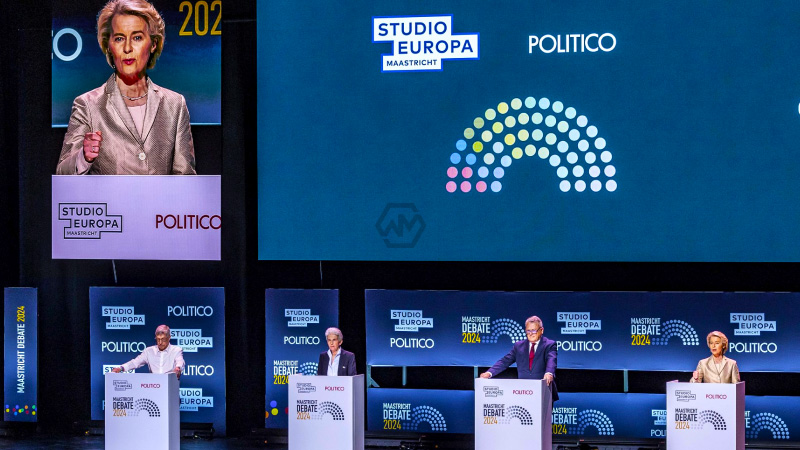- The first discussion of the 2024 European election exposed the shortcomings of the ‘Spitzenkandidat’ system of leading contenders.
- There is still a dearth of interest and public attention despite the debate having about 2,500 live views on YouTube.
- A few other candidates demonstrated the viability of the Spitzenkandidaten principle.
The first discussion of the 2024 European election exposed the shortcomings of the ‘Spitzenkandidat’ system of leading contenders, as poor viewership and obscure candidates clouded the proceedings.
The discussion demonstrated the shortcomings of the current system, according to experts at the Jacques Delors Centre think tank, who cited the debate’s relatively obscure participants and small public audience.
EU election
There is still a dearth of interest and public attention despite the debate having about 2,500 live views on YouTube, despite no significant advertising from the media, candidates, or parties. Furthermore, a few of the applicants were “not properly prepared.”
Even if 15,000 more people watched the show during the evening, it is still a small amount for an election in which almost 350 million people are eligible to vote. Before the 2014 election, EU leaders floated the notion that the choice of the EU executive’s chief would be influenced by the choices made by voters.
The idea suffered a great deal, nevertheless, when Ursula von der Leyen was chosen by the leaders of state and government in 2019 even though she was not a candidate. It is improbable that more than half of the front-runners no longer stand a prospect of winning seats in the European Parliament.
The debaters were less well-known and captivating than in 2019, according to Patrick Bijsmans, associate dean for education and professor at Maastricht University’s Faculty of Arts and Social Sciences. By pointing out that von der Leyen’s opponents periodically cornered her, a few other candidates demonstrated the viability of the Spitzenkandidaten principle.
The outcome of the vote or the electorate, however, is unlikely to be much impacted by the argument. Quaritsch of the Jacques Delors Center noted, “It’s likely that no one gained a significant advantage in the form of votes [from the debate] because the attention was too low for that.”



